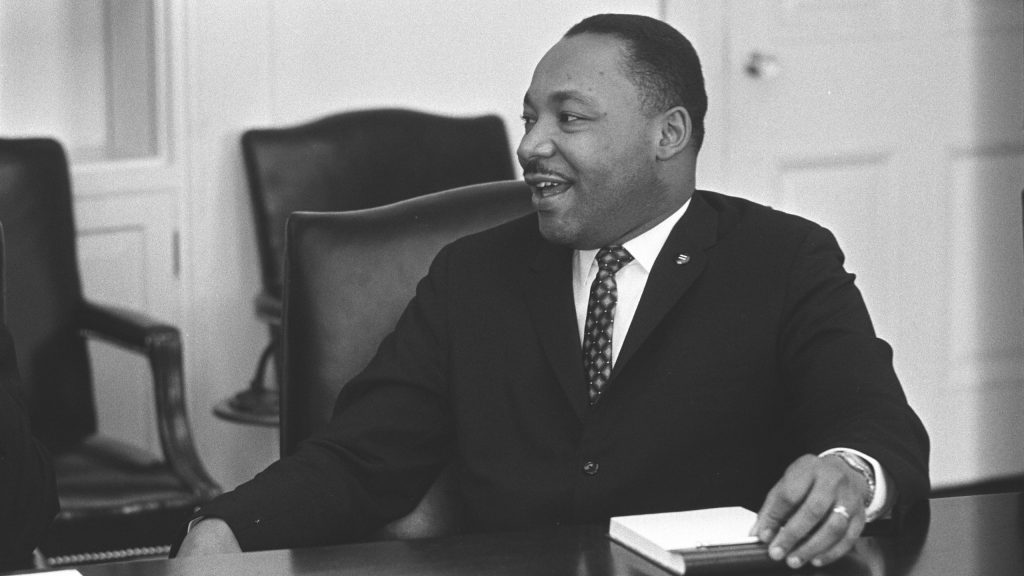The example of Martin Luther King, Jr., is still sorely needed in the United States, given continued injustices, racism and discrimination against minorities, the U.S. Conference of Catholic Bishops said in a message for MLK Day.
“As our nation prepares to commemorate the life and witness of Rev. Martin Luther King, Jr., we are grateful for his courageous stand in solidarity with all who suffer injustice and his witness of love and nonviolence in the struggle for social change,” Archbishop Jose Gomez of Los Angeles, president of the U.S. Conference of Catholic Bishops, said Jan. 16.
“But we are once again painfully aware that we are still far off from his dream for America, the ‘beloved community’ for which he gave his life.”
King is remembered as an African-American Baptist minister and the most visible leader of the civil rights movement, for which he was awarded the Nobel Peace Prize in 1964. He was the founding president of the Southern Christian Leadership Conference. He was assassinated in 1968 at the Lorraine Motel in Memphis, Tennessee, at age 39.
The United States has celebrated a federal holiday in his memory since 1983. This year the holiday falls on Jan. 20.
Archbishop Gomez, writing on behalf of the U.S. bishops, warned of continuing “disturbing outbreaks of racism and prejudice” against minority groups in the U.S. today.
“Racism is a sin that denies the truth about God and his creation, and it is a scandal that disfigures the beauty of America’s founding vision,” he said.
“Too many hearts and minds are clouded by racist presumptions of privilege and too many injustices in our society are still rooted in racism and discrimination,” the archbishop continued.
“Too many young African American men are still being killed in our streets or spending their best years behind bars. Many minority neighborhoods in this country are still what they were in Rev. King’s time, what he called ‘lonely islands of poverty.’ Let us recommit ourselves to ensuring opportunity reaches every community,” he said.
The archbishop spoke in the wake of deadly racially motivated violence.
A mass shooting at an El Paso WalMart, not far from the U.S. border with Mexico, killed 22 people and injured 24 others in August 2019. Authorities believe the gunman authored an anti-immigrant, anti-Hispanic manifesto that depicted immigrants as invaders. The gunman apparently took inspiration from a deadly attack on a New Zealand mosque.
In October 2018 a shooter killed 11 people at a synagogue in Philadelphia. In April 2019, a shooting at a synagogue in Poway, California left one dead and several wounded, including the congregation’s rabbi.
“There has been a rise of anti-Semitic attacks and also ugly displays of white nationalism, nativism, and violence targeting Hispanics and other immigrants. Such bigotry is not worthy of a great nation,” Gomez said. “As Catholics and as Americans, we must reject every form of racism and anti-Semitism.”
He cited the U.S. Conference of Catholic Bishops’ 2018 pastoral letter on racism, “Open Wide Your Hearts.”
“What is needed, and what we are calling for, is a genuine conversion of heart, a conversion that will compel change and the reform of our institutions and society,” the letter said.

